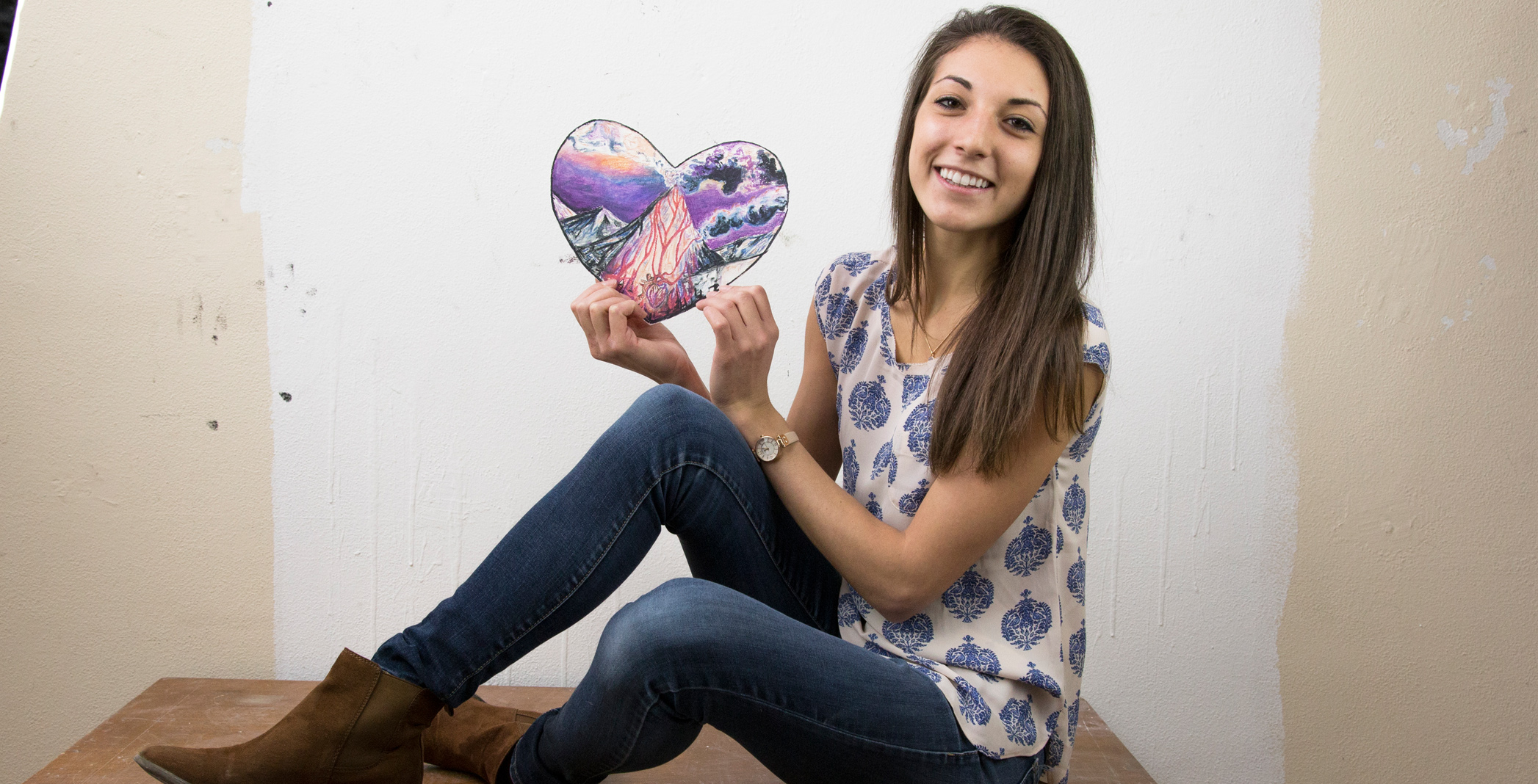The Millennial Spirit
Creativity, optimism, and a desire to make a difference

Posted on June 25, 2016
The desire to have an impact in the world, underpinned by a pervading optimism, is a common attribute of Millennials. Mount Mary’s Creative Campus channels the optimism and can-do spirit that defines this generation. Mount Mary student Denisse Hernandez, ’17, aspired to be an artist, but found that the act of producing art wasn’t quite enough for her.
“I was trying to do fine art but it felt like something was missing,” she said. She found it difficult to reconcile her love of art with her desire to have a career with direct impact in the lives of others.
Growing up in Brownsville, Texas, she was surrounded by gangs and poverty, and realized the need for committed individuals with
an affirming need to help.
She also experienced the tremendous community-building power of art.
“Whenever people went into the art room, those issues vanished,” she said. “The interaction that art had in my community really made a difference. Art really has a personal effect on a human being.”
“Whenever people went into the art room, those issues vanished,” she said. “The interaction that art had in my community really made a difference. Art really has a personal effect on a human being.”
Denisse Hernandez
Art Therapy ’17
This realization led Hernandez to the art therapy program at Mount Mary, which provided the opportunity to develop her ability to directly perform transformative work with her artistic talents.
She will graduate in 2017.
The desire to have an impact in the world, underpinned by a pervading optimism, is one of the most commonly associated attributes for Hernandez’s generation — the Millennials. Typically described as the generation that followed Generation X, with birth years ranging from the mid 1980s to 2000, Millennials are a rising force in our culture.
Establishing a culture of creativity at Mount Mary
Mount Mary has embraced the notion that the optimism and joy found amongst Millennials is closely connected to creativity.
In 2012, Mount Mary launched the Creative Campus Initiative, designed to address the need to educate tomorrow’s workforce with the kind of creative leadership skills that are aligned with the Millennial generation’s spirit and energy.
The initiative has infused creative approaches in all areas of the student experience within five core competencies: agility, experimentation, imagination, open-mindedness and navigating complexity. These attributes align well to the desires of today’s Millennials.

^Art Therapy students visualized “what is a joyful heart?” for Mount Mary University Women’s Leadership event in spring.
“It has been clearly demonstrated that our society needs growth within the creative economies to fuel the 21st century economic engine,” said President Eileen Schwalbach, Ph.D. “Tomorrow’s leaders will need to come up with new ways to organize and synthesize information to solve complicated social problems. As a result, the Creative Campus helps our students realize the optimism and can-do spirit that is coming to define their generation.”
The Creative Campus Initiative allowed Hernandez to find specific ways to solve problems and address critical issues.
Last year, for example, Hernandez attended the Wisconsin Institute for Peace and Conflict Studies Conference, where she presented research that she conducted about the dynamics of war and those displaced by chronic violence.
“I am very encouraged by Mount Mary to go out there and use the skills I have, and encourage and improve where I live,” she said.
“It’s infused in the classes, and I was able to analyze who I was and was challenged to creatively problem solve.”
Even though the formative years of this generation have been characterized by a wide range of unique societal challenges (including the Sept. 11 terror attacks and the Great Recession), a unique sense of optimism pervades. In a 2016 USA Today/Rock the Vote Poll of 18-to-34-year-olds, more than two-thirds of Millennials predict they will be more successful in their professional lives than their parents were.
Statistics indicate that Millennials eschew traditional notions of success like high salary or status for careers and positions that allow them to have a positive impact on the world.



